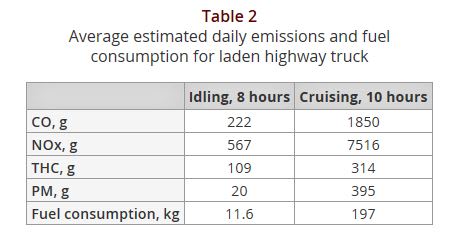- Moderator
- #1
The following thoughts are always present whenever I am driving my truck taking my young cowboy to summer rodeos, at about $0.60 per mile for fuel.
Gee, I have a fairly new truck with an almost state of the art diesel engine.
I have dual sequential turbo chargers to improve efficiency.
But don't those turbos work be extracting heat from the exhaust gasses?
Don't those BTUs extracted from the exhaust then show up as higher temperatures in the combustion chamber.
Good for efficiency, right.
But what about NOx?
Doesn't higher combustion chamber temperature mean more NOx?
How do we get rig of NOx?
Lower the temperature in the combustion chamber, right?
We can do that by introducing exhaust gasses that will not support combustion.
It seems that even after losing some heat in the turbo, the exhaust gasses may still be too hot.
Well we can cool the exhaust before introducing it into the combustion chamber.
Have we just lost some of the efficiency gained by the operation of the turbo? I don't know, I'm asking.
Now the other side of the compromise.
Is it correct that lower combustion chamber temperatures promote the production of more soot in the exhaust?
No problem, we can use a Diesel Particulate Filter to trap the soot. Hot exhaust can promote the combustion of the carbon in the DPF.
Great idea. Wait, didn't the twin sequential turbos just cool the exhaust by extracting as much energy and BTUs as possible in the quest for efficiency?
Dang, the exhaust isn't hot enough to effectively burn the soot/carbon out of the filter. It will soon plug up.
There must be a solution.
Hey let's make the exhaust hotter. Great idea. How can we do that? We can add fuel to the exhaust to promote burning in the filter. That will keep the filter burned clean.
Considering the load that I am pulling and compared to older engines, I may be dumping as much fuel into the exhaust as I am burning to pull the load down the highway.
I understand the need for cleaner air in the cities, but is it feasible to allow a little higher levels of polutants out on the highways away from population centers? Not really a suggestion, more a question.
Is it time to move away from diesel power to lighter fuels such as LNGs?
How much pollution could be avoided by using propane instead of diesel?
Can NOx in a propane powered engine be reduced economically by using larger displacements per HP and less EGR rather than having an EGR system working against the turbo system?
Given the very great ratio between the first cost of an engine and the cost of fuel over the lifetime of the engine, I am not much concerned about a heavier, larger more expensive engine block.
Can anyone fill in some actual numbers here?
Bill
--------------------
"Why not the best?"
Jimmy Carter
Gee, I have a fairly new truck with an almost state of the art diesel engine.
I have dual sequential turbo chargers to improve efficiency.
But don't those turbos work be extracting heat from the exhaust gasses?
Don't those BTUs extracted from the exhaust then show up as higher temperatures in the combustion chamber.
Good for efficiency, right.
But what about NOx?
Doesn't higher combustion chamber temperature mean more NOx?
How do we get rig of NOx?
Lower the temperature in the combustion chamber, right?
We can do that by introducing exhaust gasses that will not support combustion.
It seems that even after losing some heat in the turbo, the exhaust gasses may still be too hot.
Well we can cool the exhaust before introducing it into the combustion chamber.
Have we just lost some of the efficiency gained by the operation of the turbo? I don't know, I'm asking.
Now the other side of the compromise.
Is it correct that lower combustion chamber temperatures promote the production of more soot in the exhaust?
No problem, we can use a Diesel Particulate Filter to trap the soot. Hot exhaust can promote the combustion of the carbon in the DPF.
Great idea. Wait, didn't the twin sequential turbos just cool the exhaust by extracting as much energy and BTUs as possible in the quest for efficiency?
Dang, the exhaust isn't hot enough to effectively burn the soot/carbon out of the filter. It will soon plug up.
There must be a solution.
Hey let's make the exhaust hotter. Great idea. How can we do that? We can add fuel to the exhaust to promote burning in the filter. That will keep the filter burned clean.
Considering the load that I am pulling and compared to older engines, I may be dumping as much fuel into the exhaust as I am burning to pull the load down the highway.
I understand the need for cleaner air in the cities, but is it feasible to allow a little higher levels of polutants out on the highways away from population centers? Not really a suggestion, more a question.
Is it time to move away from diesel power to lighter fuels such as LNGs?
How much pollution could be avoided by using propane instead of diesel?
Can NOx in a propane powered engine be reduced economically by using larger displacements per HP and less EGR rather than having an EGR system working against the turbo system?
Given the very great ratio between the first cost of an engine and the cost of fuel over the lifetime of the engine, I am not much concerned about a heavier, larger more expensive engine block.
Can anyone fill in some actual numbers here?
Bill
--------------------
"Why not the best?"
Jimmy Carter

